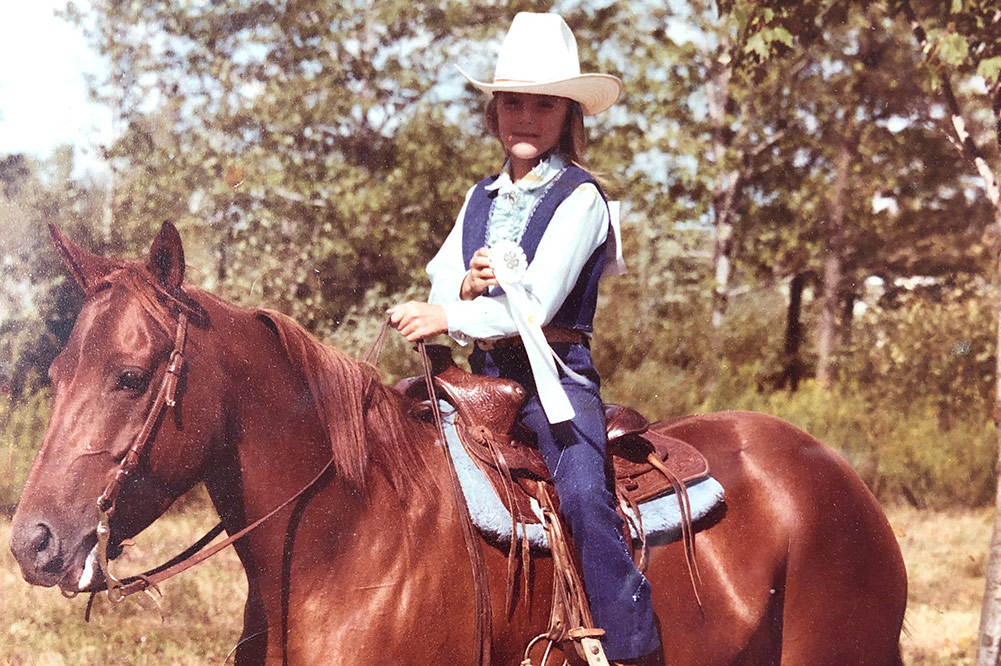I never said goodbye.
My first horse, Amy, left me in a very unexpected way. And I never had a chance to say goodbye.
We were close. A red-brown horse with soft eyes and a sweet disposition, she was the perfect companion for a horse-crazy, 13-year-old girl. Her gentle nature supported and guided me in a way that’s hard to explain. Her absence left a hole in my heart that never mended.
Grief is a heavy burden, especially when you don’t realize you’re carrying it. It finds its way out of you, one way or another, and affects you in profound ways. It’s the misplaced anger or fear over a trivial event. Or the anxiety over a seemingly benign incident. Ways that throughout our lives we chalk up to decisions at hand, when in truth they are completely unrelated. Unacknowledged grief can damage relationships and destroy happiness without a hint of what it is and where it is coming from.
Many years into my adult life, I remained unaware of the impact of my grief. On its surface, I connected it to a lasting love of horses and a determination to never let money—or the lack of it—keep me from something I loved. But on a much deeper level, I failed to see it was attached to the sadness inside me—a sadness unrecognizable for what it was: a broken heart. Then I met Bailey.
My first coaching experience in the Equine Gestalt Coaching Method training program introduced me to a beautiful mare who, in so many ways, reminded me of Amy. The same color, the same soft eyes. Melisa, my Gestalt coach and mentor, asked Bailey to stand as Amy, and it was through Bailey that Amy came to me half-way through my “work.” As she stood before me, my grief gave way, the heaviness of it toppling me. It wasn’t until I dropped to my knees in that arena, sobbing, that I understood where a big piece of my anger, fear, and anxiety came from—it was the grief of losing Amy and being robbed of saying goodbye.
Those prone to “reacting” in their lives rather than mindfully “responding,” might have unfinished business needing to tend to. Grief is often at the root of these reactions—grief you don’t know you are carrying, or think you have “dealt” with. Until it’s acknowledged, you struggle to move forward. A coach—especially a master of mindfulness—can help you piece together the fragmented parts of yourself caused by loss and trauma. As you move toward wholeness, grief can shift into love and gratefulness which then can help you respond appropriately to current situations that triggered you in the past.
After a few moments on the arena floor my strength came back to me, and I stood and approached “Amy.” I laid my hands on her, felt her warmth, listened to her breath, allowed her heartbeat to embrace my own. Fully present in the moment, I said the goodbye I was denied so many years before. A dark cloud lifted, and I became calmer. A new peace found its way into my heart, and I thanked Bailey for helping me come full circle. Now I treasure my memories of Amy for what they are—cherished experiences guiding me to a higher purpose.

